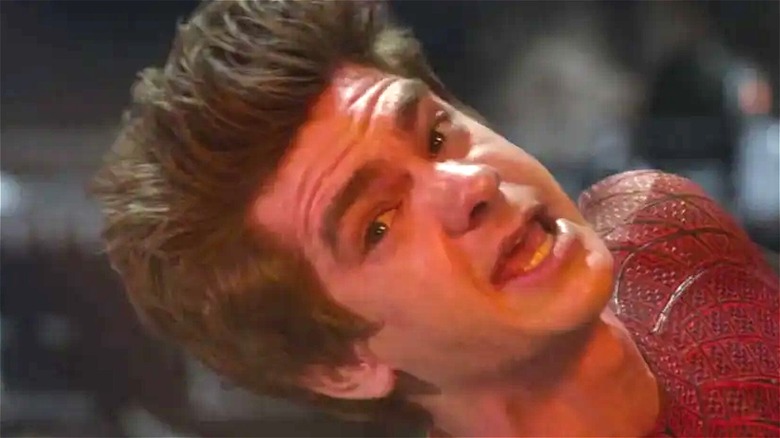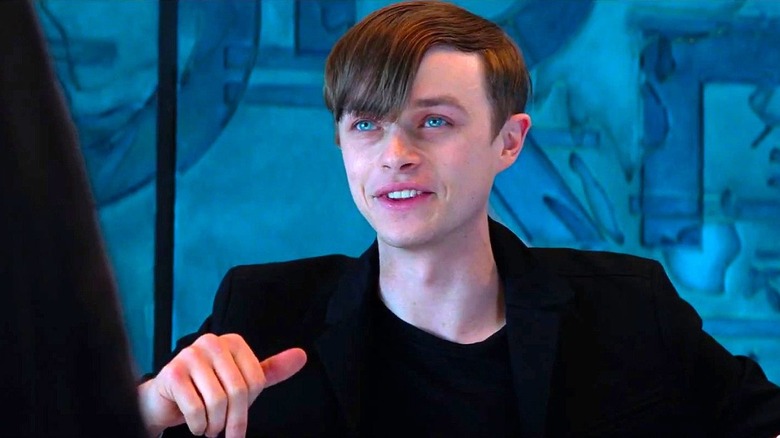The Andrew Garfield Spider-Man Scene That Went Too Far
There have been three actors to portray the character of Spider-Man in live-action form on the big screen in the 21st century. The first and third of these Spider-Man actors, Tobey Maguire and Tom Holland, have each received three solo films thus far (although the possibility for more films is still on the table for the latter). But Andrew Garfield — the second actor to take a stab at the role in a live-action movie — only received two films in his "The Amazing Spider-Man" series. A planned third film was scrapped and the character was rebooted once again, this time as part of the Marvel Cinematic Universe and featuring Holland in the role.
While the first Garfield film, "The Amazing Spider-Man," was mostly well-received by audiences and critics, "The Amazing Spider-Man 2" did not fare so well. It scored a middling 51% on Rotten Tomatoes and grossed $709 million worldwide, which was the lowest gross for a live-action "Spider-Man" movie (per The Numbers). Still, after Garfield and Maguire appeared in "Spider-Man: No Way Home," there has been a large resurgence in support for Garfield returning to the role, a possibility that Garfield himself is open to.
Regardless, upon examining "The Amazing Spider-Man" movies, it's clear that there were some scenes that fans either found hard to watch or hard to take seriously. Out of all of those moments, there is one scene in particular that just went too far.
Peter refusing to give his blood to Harry makes no sense
"The Amazing Spider-Man 2" introduces viewers to its version of Harry Osborn (Dane DeHaan), who is revealed to have a genetic disease called Retroviral Hypodysplasia. Harry asks Spider-Man to give him a sample of his blood so Harry can cure his disease, but Spider-Man refuses, fearing that it'll lead to unintended consequences, much like Dr. Curt Connors (Rhys Ifans) experienced in "The Amazing Spider-Man" when he accidentally became a human-animal hybrid. However, this scene with Harry doesn't really endear Peter Parker to viewers who want to think of him as a superhero, and it's often cited by fans as a portion of the movie that doesn't work with who he is as a person.
The problem with Peter's logic here is that Harry is already dying of his incurable disease, so there's no reason not to try the experiment with Spider-Man's blood. One could argue that it could have led to something even worse than the disease, but given that Harry has his own lab of highly intelligent scientists, who's to say that they couldn't reverse-engineer a cure for Harry (and even other diseases)? There's no guarantee, of course, but Peter should have been willing to take a chance on his friend rather than callously dismissing him, even if Peter was holding onto fears of his experiences with Connors.

